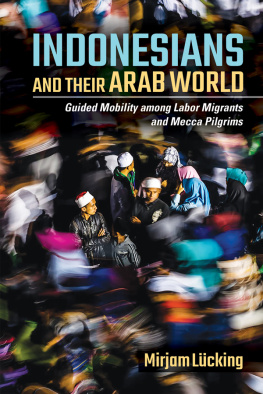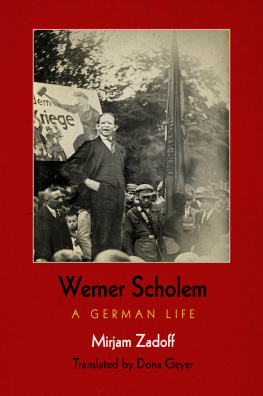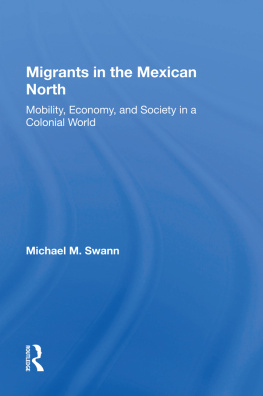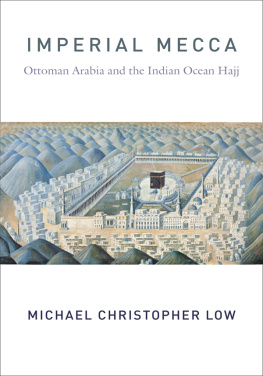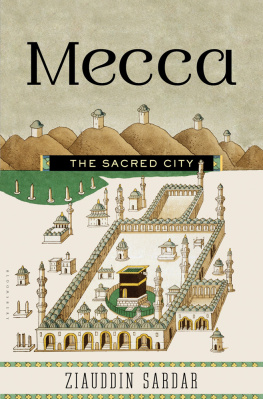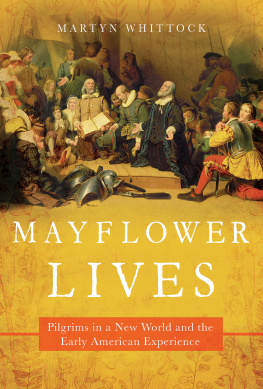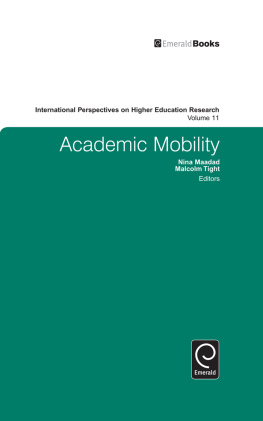Acknowledgments
In writing about guided mobility, I realize how much my own mobility in this project has been guided. I am grateful to all those who guided my physical and intellectual steps and thereby enabled movement and understanding in the first place.
The protagonists of this book are labor migrants and Mecca pilgrims, and their relatives, neighbors, friends, and guides, in Madura and Central Java. I wish to express my deep gratitude to all those who participated in my research and who mostly remain anonymous here. I especially thank my research partners, Nuki Mayasari, Khotim Ubaidillah (Ubed), and Kamalatul Khorriyah (Mala).
My first steps into a part of Indonesias diverse Islamic culture took place in 2008, when Nuki and I conducted a small research project in Islamic boarding schools (pesantren) in Yogyakarta. Throughout the last decade our paths crossed in and beyond research in Indonesia and Germany, and I am grateful to the many joint research experiences and postfield trip discussions that we continue to share.
Ubed guided my way into Madurese societyeven when he was not physically there. Our first explorative motorcycle trip in Pamekasan and Sampang was truly eye opening, and what started with the joint spatial mobility developed into intense intellectual mobility and exchange. Beyond the immense support in practical and intellectual research questions, Ubed contributed to this book through useful comments on an earlier version of the manuscript and through his photographs.
Mala, who is not an anthropologist but an agricultural engineer by training, spontaneously engaged in my research activities with a natural talent for ethnographic research. I am thankful for our joint research activities during Ramadan 2014 in Pamekasan and for the generous hospitality offered by her and her family.
Regarding my physical mobility, several institutions enabled me to travel, research, and write. The German Federal Ministry of Education and Research funded a research project from which this book emerged, as part of the Freiburg Southeast Asian Studies Program Grounding Area Studies in Social Practice, under grant number 01UC1307. The research in Indonesia was approved by the Indonesian Ministry for Research and Technology (Kementerian Riset dan Teknologi) under permit number 028/SIP/FRP/SM/I/2014 and upon invitation by Gadjah Mada University Yogyakarta. At a later stage of the project, the following grants and fellowships provided time and intellectual freedom for work on this book: The STAY!-grant of the Freiburg University Foundation (Neue Universittsstiftung); a postdoctoral fellowship at the Hebrew University of Jerusalem and with the Center for the Study of Conversion at Ben Gurion University of the Negev, funded by the Israeli Science Foundation under grant number 12/1754; and an ongoing postdoctoral fellowship at the Martin Buber Society of Fellows at the Hebrew University of Jerusalem, which is supported by the German Federal Ministry of Education and Research.
During the research period, the University of Freiburg offered an inspiring academic home, and I cordially thank all members of the Freiburg Southeast Asian Studies Program and the Department of Social and Cultural Anthropology. Special thanks go to Judith Schlehe for her constructive critiques and encouraging supervision and for her efforts to create the Freiburg-Yogyakarta tandem research projects, which established invaluable long-term contacts in Indonesia and inspired me to apply approaches for cooperative research. Jrgen Rland, who headed the Freiburg Southeast Asian Studies Program, tirelessly supports early career researchers, and I thank him for his valuable advice and for the multifarious Southeast Asia related activities in Freiburg. Moreover, I thank Gregor Dobler for his comprehensive feedback on an earlier version of the manuscript.
Several colleagues in Freiburg inspired my work: Anna Fnfgeld and Stefan Rother enriched my views through the perspective of political science, my colleagues Melanie Nertz, Ita Yulianto, Evamaria Sandkhler, Sita Hidayah, Paritosha Kobbe, and Imam Ardhianto gave me useful feedback on my writing and insights from their own studies on Indonesia; Margarete Brll, Stefan Seitz, Andreas Volz, Heike Drotbohm, Ingo Rohrer, Anna Meiser, Eric Haanstad, Saskia Walther, Martin Bdel, and Moritz Heck broadened my anthropological horizon and contributed to a good working atmosphere at the department.
My earlier studies at the Department for Islamic Studies at the University of Freiburg and study visits to Syria and Morocco enabled me to get a glimpse of the diversity of the Arab world, which was a trigger for the questioning of claims of an Arabization in Indonesian Islamic traditions. I thank my Arabic teacher, Mohamed Megahed, who was one of the first to introduce me to the richness of Arabic language and culture, and Valerie Kbele, with whom I shared many travels.
Beyond academia, I was greatly supported by friends in Freiburg: Emad Al-Bawab, Anita Bertolami, Hannes Brkel, Kyle Egerer, Shiva Grings, Alexander Ell, Mareike Krebs, and Jule Westerheide read extracts from the book, discussed my ideas, and refreshed my thoughts. Nadja Brger helped me significantly with bibliographic challenges and Larissa Mogk encouraged some crucial restructuring of the text. The Freiburg Lindy Hoppers kept me moving and inspired my theory about guiding and following when away from my desk.
My stays in Indonesia fundamentally benefited from the institutional affiliation with Gadjah Mada University (UGM), and I sincerely thank Pak Pujo Semedi, then dean of the faculty of Cultural Studies, and all members of UGMs Department of Anthropology for their support. At Universitas Islam Negeri Sunan Kalijaga in Yogakarta I thank Inayah Rohmaniyah and Muhammad Wildan as well as Tracy Wright Webster, who was affiliated with UIN at the time of research. Furthermore, my work was significantly inspired by the Madura experts Wisma Nugraha Christianto, Abdur Rozaki, Mutmainna Munir, Iskandar Dzulkarnain, and contact with the sociology department of Universitas Trunojoyo Madura.
The friendship, company, and care of Rarasari Emprit, Febri Gahas, Tiyas Gahas, Ibu Gatot, Farha Habsyi, Ibu Heru and her family, Mbak Lani, Ibu Lassi, and Mbak Wiwik boosted my research and enriched my daily research life: mator sakalangkong and matur nuwun! A warm terima kasih goes to Selma, Claudia and Matthias Brner, Nina Gaiser, and Sita Hidayah, who moved like me between Germany and Indonesia and bridged the different worlds while researching.
In the context of cooperation with the School of Culture, History, and Language of the Australian National University, which was financially supported by the DAAD-Go8 program, Ariel Heryanto, Evi Eliyanah, Meghan Downes, and Maria Myutel offered insightful viewpoints from cultural studies, and I thank them for our continuous exchange.
While working on the first drafts of this book manuscript, I greatly benefited from conversations with and feedback from Martin Slama, Agus Suwignyo, Achmad Munjid, Yeri Wirawan, Ray Yen, Olivia Killias, Claudia Derichs, Greg Fealy, Hew Wai Weng, Kathryn Robinson, Nicola Piper, Marjo Buijtelaar, Manja Stephan-Emmrich, Viola Thimm, and Amanda tho Seeth.
Alec Crutchley read the text of this book in its various stages, and I thank him for his diligent language checks. For drawing the maps and patiently adjusting them, I thank Imam Ardhianto. And for letting me use his stunning photograph of an Isra and Miraj celebration in Purwokerto as cover image, I thank Ray Yen.

